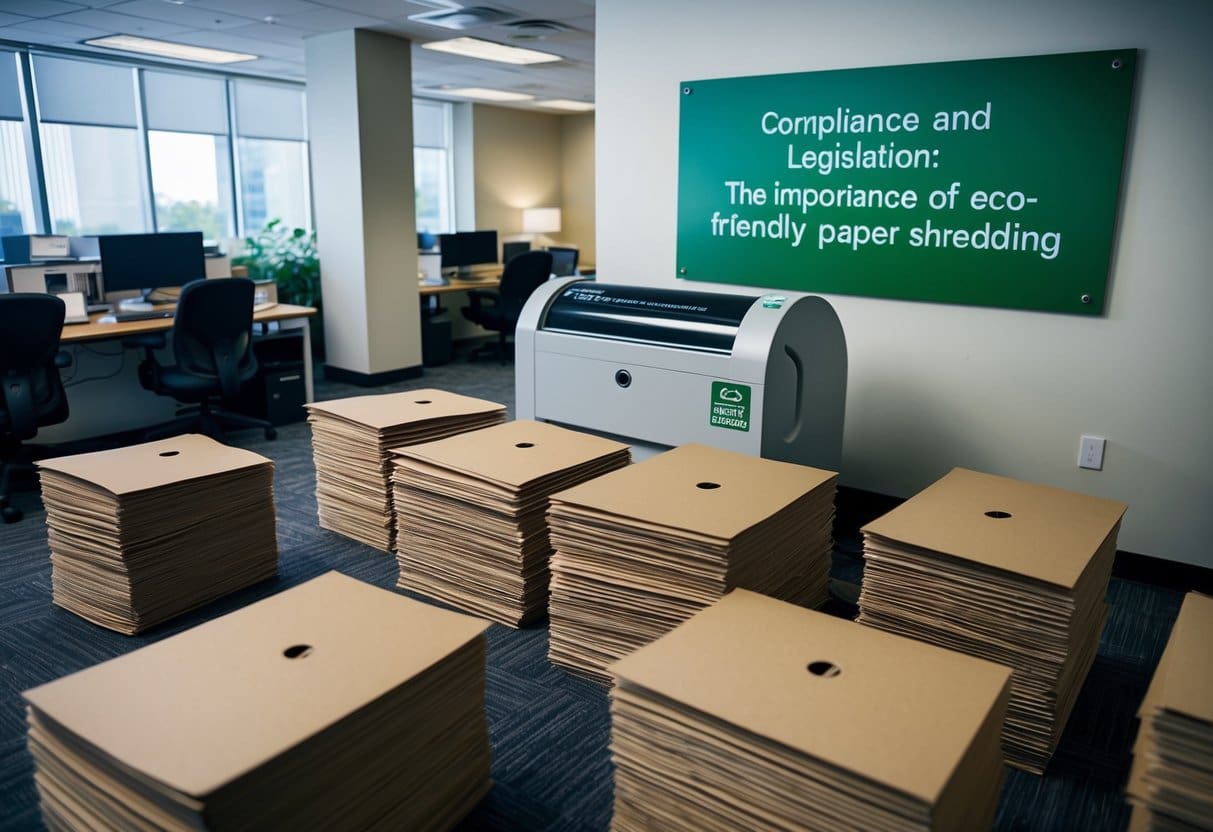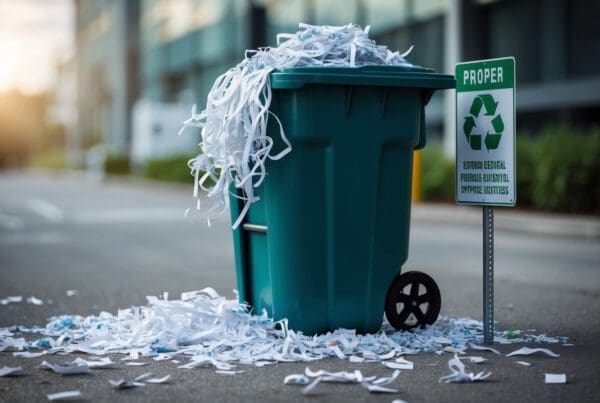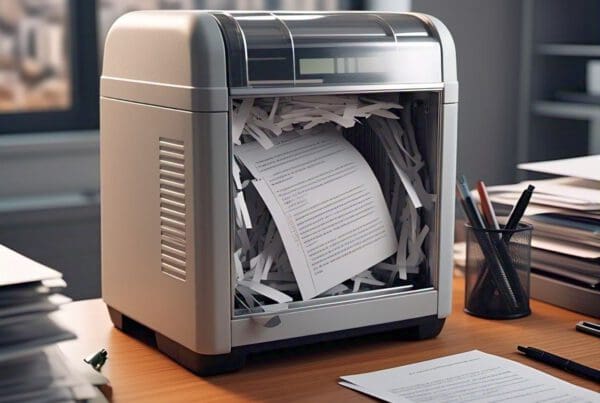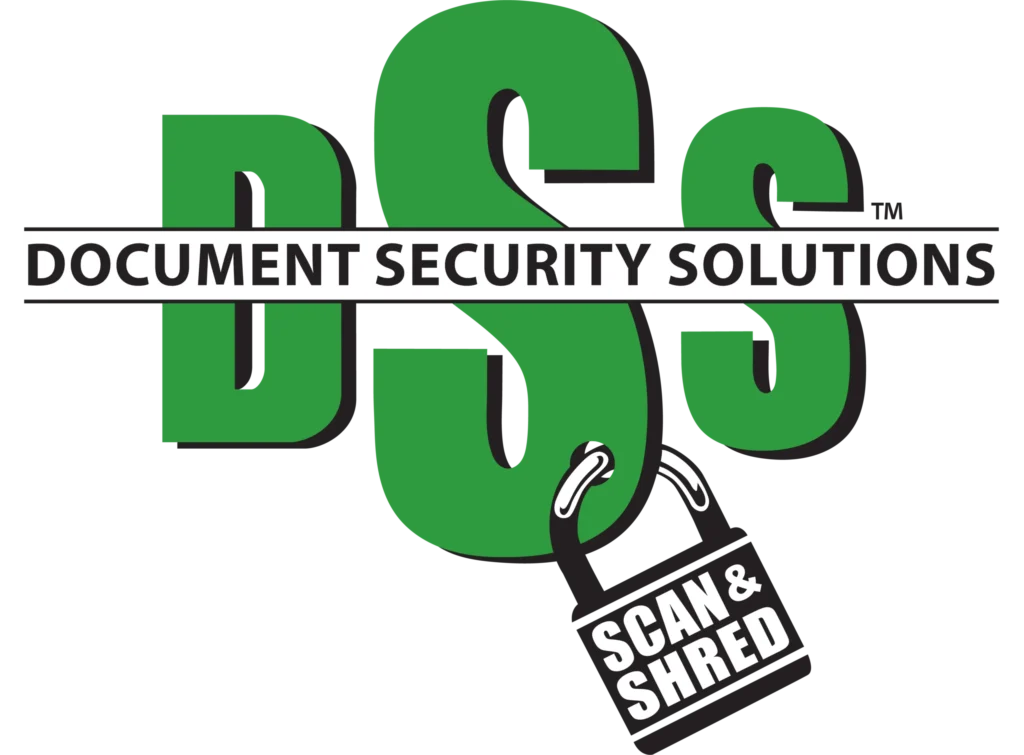Eco-Friendly Paper Shredding in Georgia
Eco-friendly paper shredding plays a crucial role in Georgia’s efforts to protect the environment while maintaining data security. It reduces waste in landfills and safeguards confidential information.
Environmental Benefits
When we choose eco-friendly paper shredding, we help decrease the environmental impact significantly. Shredded paper often ends up being recycled, which cuts down the need for new resources and reduces deforestation. By committing to these practices, we also lower our overall carbon footprint.
Landfills in Georgia are less burdened because shredded paper can be transformed into new products. Eco-friendly shredding ensures that paper waste doesn’t just add to the piles in landfills. Less waste means fewer greenhouse gases are emitted, making our state a cleaner place to live.
Additionally, choosing sustainable shredding solutions helps conserve energy. Recycling shredded paper generally consumes less energy compared to producing new paper from raw materials. This not only saves energy but also reduces pollution and water usage.
Data Security and Confidentiality
Maintaining data security while shredding is essential. Confidential information often rests on the documents we need to discard. Eco-friendly shredding processes ensure that sensitive data remains secure throughout the recycling process.
We prioritize confidentiality by using shredding services that follow strict standards. These services guarantee shredded pieces are rendered irretrievable. This safeguards personal and business data from unauthorized access or identity theft.
In Georgia, businesses and residents can invest in services that provide secure bins and on-site shredding options. These practices not only protect privacy but also help us manage waste responsibly, aligning data security with environmental care.
Sustainable Shredding Technologies and Practices
In Georgia, eco-friendly paper shredding involves using advanced machinery and energy-efficient operations. These practices help conserve energy and reduce environmental impact, promoting sustainability.
Advancements in Shredding Machinery
We have witnessed significant improvements in shredding machines. Newer models are designed to use less energy while maintaining high efficiency. These machines have smart sensors that adjust power use based on the load they handle. Our aim is to provide eco-friendly solutions without sacrificing performance.
Manufacturers focus on durable materials and streamlined designs as well. This reduces wear and tear, ensuring longer life spans for the equipment. Improved safety features also decrease downtime, boosting productivity and further conserving energy.
Energy-Efficient Operations
Energy conservation is a key component of eco-friendly shredding. We implement energy-saving protocols during operations. Machines are programmed to enter standby mode when not in use, saving power. Investing in solar panels or other renewable energy sources is also encouraged to power shredding facilities sustainably.
Training our staff to use machinery efficiently also plays a critical role. Our team learns ways to minimize energy consumption, such as shredding in bulk rather than small batches. By promoting such sustainable practices, we contribute positively to environmental sustainability in our communities.
Compliance and Legislation
As we focus on eco-friendly paper shredding in Georgia, it’s essential to address compliance with local recycling regulations and adherence to data protection and destruction laws. These facets are crucial in maintaining environmental and data security standards.
Georgia’s Recycling Regulations
In Georgia, recycling regulations play a significant role in eco-friendly paper shredding. Facilities must comply with state mandates to ensure proper processing of shredded paper. We work closely with certified recycling centers to meet these standards.
It’s essential to understand how recycling centers segregate and manage different types of paper waste. Proper sorting helps enhance efficiency and reduces environmental impact. Non-compliance can result in penalties, so following these rules is vital. Our partnerships ensure that shredded paper gets recycled into new products, minimizing landfill waste.
Data Protection and Destruction Laws
Data protection is another critical area of focus for us. Georgia and federal laws outline strict guidelines for how sensitive information should be handled. Companies must ensure safe document destruction to prevent data breaches.
Our shredding processes are designed to adhere to these laws while maintaining the confidentiality of private information. We use secure shredding methods that make it impossible to piece together destroyed documents. This ensures that any data remains protected throughout the process.
Additionally, regular audits help safeguard compliance with laws like the Gramm-Leach-Bliley Act and the Fair and Accurate Credit Transactions Act. Adhering to these regulations ensures that we protect both our clients and their customers’ data.
The Role of Businesses and Individuals
We all play a crucial part in eco-friendly paper shredding. Businesses can adopt sustainable practices, while individuals can engage in educational activities to promote recycling.
Corporate Sustainability Initiatives
Businesses in Georgia are in a key position to lead eco-friendly paper shredding efforts. They can implement corporate sustainability programs that focus on reducing paper waste. By switching to digital documents, companies can cut down on the use of paper significantly. For the paper that can’t be avoided, a comprehensive waste management plan involving recycling is essential.
Encouraging the recycling process within the company helps minimize the paper that ends up in landfills. By collaborating with recycling facilities, businesses can ensure that shredded paper is properly recycled. Offering employees training on effective recycling techniques also boosts participation in these initiatives.
Community Education and Participation
For individuals, community involvement is vital. We need to be aware of how recycling can help in mitigating climate change. Participating in local workshops can provide us with information about the paper recycling process. Educating our community on how paper shredding reduces pollution is an impactful way to contribute.
Organizing local drives and events to collect and recycle shredded paper can bring people together. By creating a culture of recycling, we make it easier for everyone to participate. Information campaigns can help motivate others to recycle paper waste regularly, which helps in reducing the overall environmental footprint.





